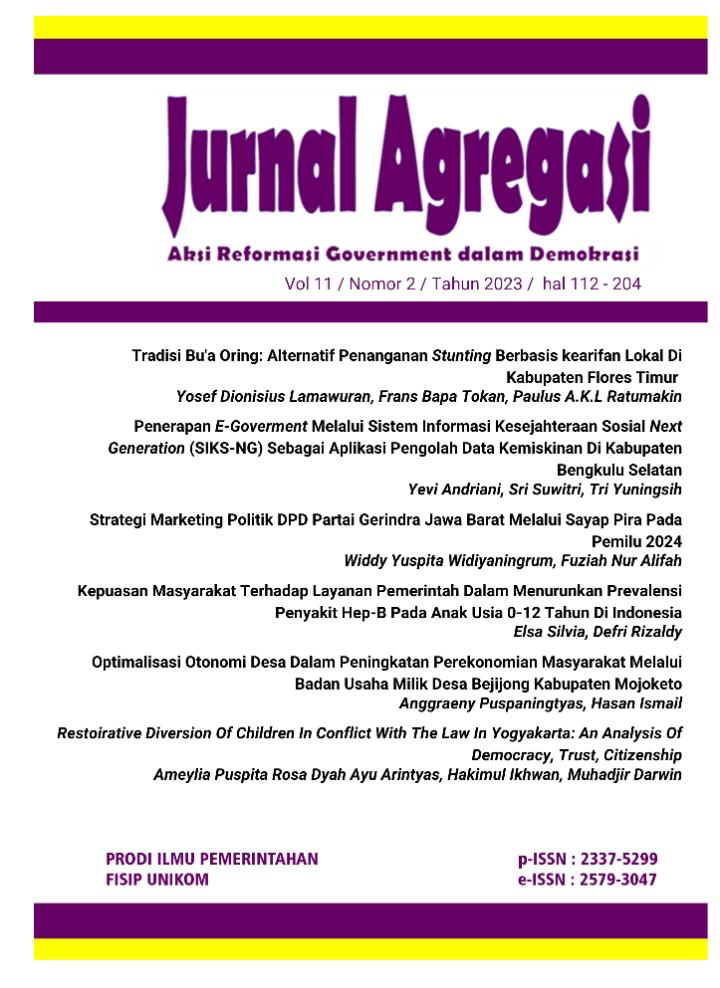Optimalisasi Otonomi Desa Dalam Peningkatan Perekonomian Masyarakat Melalui Badan Usaha Milik Desa Bejijong Kabupaten Mojokerto
DOI:
https://doi.org/10.34010/agregasi.v11i2.8383Keywords:
BUMDes, economic improvement, village autonomyAbstract
This study to analyze the village autonomy optimalization in improving the community's economy through BUMDes. Based on the policy of Law Number 6 of 2014 concerning villages, it aims to build Indonesia from the village having the motive of economic decentralization through the distribution of village authority to regulate and develop village potential, to achieve that goal the village government is given the authority to manage village economic resources through the establishment of BUMDes which is regulated in article 87 of Law Number 6 of 2014 concerning Villages. The implementation of this policy has been implemented since 8 years ago, until 2022 the distribution of independent villages is at 8.45%. This shows that village autonomy is still not able to optimally increase village independence, one of the causes of the small percentage of independent villages, namely the inability of villages to optimize BUMDes as a tool for driving the community's economy. This research uses descriptive qualitative method. The data used are primary and secondary data. Data collection techniques through observation, interviews, and literature studies. The results of the study show that the implementation of village autonomy still needs to be improved and in the management of BUMDes it still has not improved the economy of the Bejijong Village community. The recommendation of this research is to revitalize village institutions, especially the BUMDes Wijaya Bejijong Institution and improve the management of BUMDes through collaboration with various stakeholders and the community in optimizing village autonomy.
keywords: BUMDes, economic improvement, village autonomy
Downloads
Downloads
Published
Issue
Section
License
This work is licensed under :

Creative Commons Attribution-NonCommercial 4.0 International License









